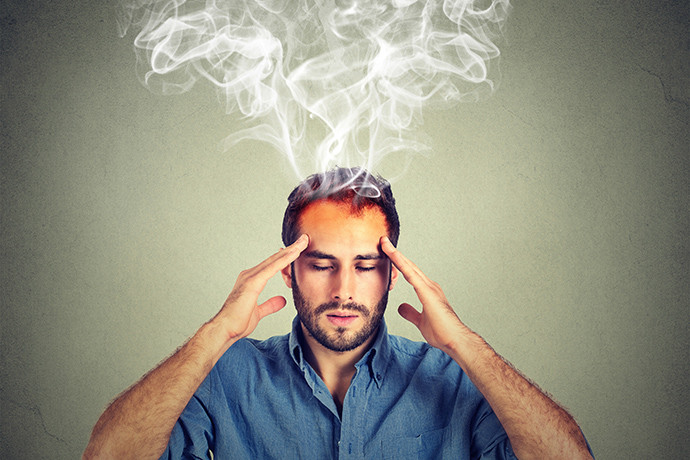Introduction: What Is Mental vs Physical Fatigue?
Fatigue is more than just feeling tired. Many people confuse mental vs physical fatigue, but both affect your body in different ways. Knowing the difference is essential for proper recovery, better health, and improved performance—whether you’re a student, a professional, or a parent juggling daily life.
Mental vs Physical Fatigue: Key Signs & How to Manage Both
Fatigue is a universal experience—but did you know there’s a big difference between mental fatigue and physical fatigue? Understanding these two types is crucial to finding the right solution and reclaiming your energy. This article will help you clearly identify the symptoms of each and offer science-backed strategies to overcome them.
What Is Mental Fatigue?
Mental fatigue occurs when your brain feels overworked and sluggish. It’s common among people who spend long hours on mentally demanding tasks like studying, screen time, decision-making, or multitasking.
Common Symptoms of Mental Fatigue
- Difficulty concentrating
- Brain fog or forgetfulness
- Irritability and mood swings
- Lack of motivation
- Headaches or eye strain
Causes of Mental Fatigue
- Excessive screen time or digital overload
- Sleep deprivation
- Chronic stress or anxiety
- Overthinking or decision fatigue
What Is Physical Fatigue?
Physical fatigue, on the other hand, is when your body feels drained and weak, usually after intense physical exertion, lack of rest, or illness.
Common Symptoms of Physical Fatigue
- Muscle soreness or body aches
- Sluggish movement
- Reduced endurance
- Yawning or drowsiness
- Physical weakness even after rest
Causes of Physical Fatigue
- Intense physical activity or overtraining
- Nutritional deficiencies (like iron or B12)
- Dehydration
- Medical conditions like anemia or hypothyroidism
Key Differences Between Mental vs Physical Fatigue
| Feature | Mental Fatigue | Physical Fatigue |
|---|---|---|
| Cause | Mental tasks, stress, screen time | Physical exertion, lack of nutrients |
| Symptoms | Brain fog, irritability, lack of focus | Muscle soreness, low energy, yawning |
| Solution | Mental rest, mindfulness | Physical rest, hydration, nutrition |
| Affected Areas | Mind, emotions | Muscles, stamina, sleep patterns |

Can You Have Both at Once?
Yes! Many people experience mental and physical fatigue together, especially those in high-pressure jobs or students juggling studies and part-time work. Chronic stress can drain your mind, while inactivity or overexertion can wear out your body.
How to Manage Mental vs Physical Fatigue:
How to Manage Mental Fatigue
- Take Regular Screen Breaks (Use the 20-20-20 rule)
- Practice Mindfulness or Meditation
- Prioritize Sleep and Downtime
- Break Big Tasks into Smaller Chunks
- Unplug from Devices Before Bed
How to Manage Physical Fatigue
- Stay Hydrated (Drink at least 2–3 liters a day)
- Improve Your Nutrition (Add iron, magnesium, B12)
- Stretch and Move Lightly
- Get Consistent Sleep
- Consult a Doctor if Fatigue Persists
When to See a Doctor?
If fatigue—mental or physical—lasts more than two weeks, it’s time to talk to a healthcare provider. Persistent fatigue can be a sign of:
- Anemia
- Thyroid disorders
- Depression or anxiety
- Chronic Fatigue Syndrome (CFS)
- Sleep apnea
Final Thoughts
Understanding whether your tiredness stems from mental fatigue or physical fatigue helps you treat the root cause—not just the symptom. Remember, your mind and body are connected—taking care of both leads to better energy, productivity, and peace of mind.
Start with small changes today—and your energy levels will thank you tomorrow!
External Links to Authoritative Sources:
- Mayo Clinic – Fatigue Causes:
https://www.mayoclinic.org/symptoms/fatigue/basics/causes/sym-20050894 - WebMD – What Is Mental Fatigue?
https://www.webmd.com/balance/mental-fatigue-overview - Harvard Health – Understanding Chronic Fatigue:
https://www.health.harvard.edu/newsletter_article/understanding-fatigue - Cleveland Clinic – Mental Exhaustion:
https://health.clevelandclinic.org/mental-exhaustion - CDC – How Much Sleep Do I Need?
https://www.cdc.gov/sleep/about_sleep/how_much_sleep.html - NHS UK – Tiredness and Fatigue:
https://www.nhs.uk/conditions/tiredness-and-fatigue/ - Johns Hopkins – When Should You Worry About Fatigue?
https://www.hopkinsmedicine.org/health/conditions-and-diseases/fatigue


